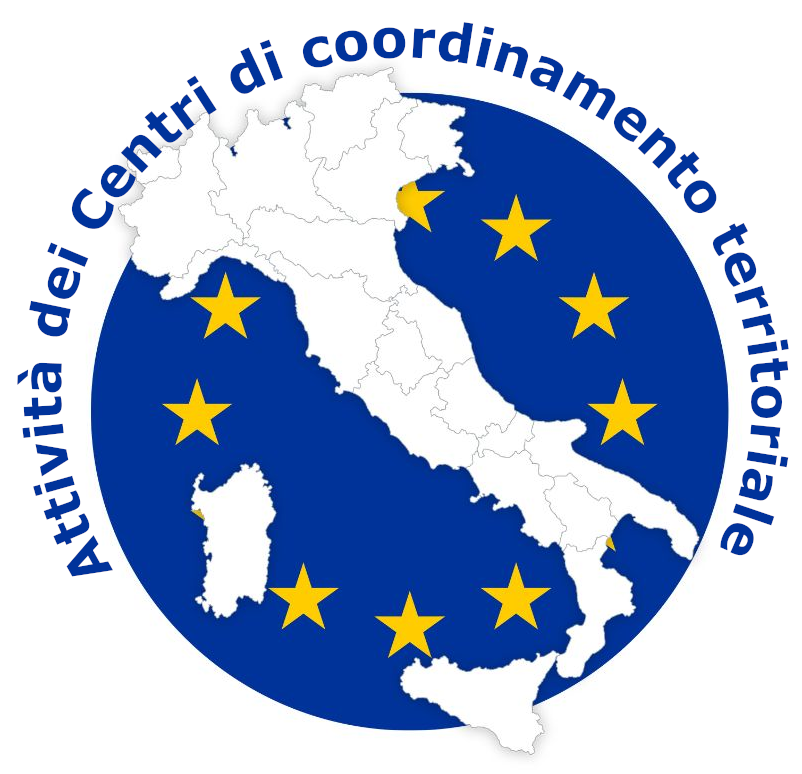VI SEGNALIAMO
- 30-31 marzo 2021, XVI Assemblea Congressuale AICCRE, Sezione italiana del CCRE (Consiglio dei Comuni e delle Regioni d’Europa) (online)
- 31 marzo 2021, ore 10.00-11.30, A civil society dialogue on self and collective care inside civic organisations (INGO Conference of the Council of Europe e World Forum for Democracy). Registrazione
- 1 aprile 2021, ore 18.30-19.30, 6a puntata Europa in Onda (Per maggiori informazioni, visita l'apposita sezione)
IN EVIDENZA
- Verso una svolta “sociale” dell’Unione europea? Incontri pubblici sul futuro d’Europa (Fondazione Lelio e Lisli Basso)
ARTICOLO (SU SENTENZA KARLSRUHE)
by Erik F. Nielsen, Group Chief Economist (UniCredit Bank, London)
Happy Palm Sunday,
There is little prospect for Easter peace, let alone a Good Friday agreement, in the epic battle between powerful German institutions over the country’s participation in the European project of ever closer union.
Possibly the single most complicated aspect of European integration is the transfer of competences from independent, and therefore powerful, national institutions to common European institutions. The examples of quiet, or not-so-quiet, resistance by national institutions to accept post-war Europe’s move towards integration are plentiful, and in too many cases the political compromise (nationally and pan-European) has been to leave the national institutions in place, build the desired European institution and accept grey zones of competences between them.
In constitutional matters, the lines between the competencies of the European Court of Justice, established in 1952, and the national constitutional courts were never drawn clearly, but they have in most cases fallen into place over time, although unevenly so between different countries. More recent examples over overlapping institutions include the establishment of the European Medicines Agency in 1995 (we didn’t get one new and common medical agency, but one more along with the national ones), and when the ECB became a bank supervisor in 2014, we didn’t really get one new and common supervisor, but one more along with the national ones.
In particular, the German Constitutional Court in Karlsruhe (the BVerfG) never seemed to accept any transfer of competences to the ECJ in Luxembourg but rather dug in its heals as the guardian of Germany’s sovereign constitution. Yet, as we know, in an interconnected world, let alone in a deeply integrated Europe, sovereignty is not a discipline of national laws, but of management of interconnected relations.
So, on Friday, only a few months after the German government and Bundestag had to jump through a number of rather meaningless loops to satisfy the BVerfG’s objections to the Bundesbank’s participation in the ECB’s QE program, the BVerfG was back with an injunction to stop President Steinmeier from signing into law the legislation for Germany’s participation in the NGEU’s EUR 750bn recovery fund until the court has considered its legality. The Bundestag and Bundesrat had approved the law facilitating Germany’s participation with solid majorities on Thursday and Friday, respectively.
Like in the case against (de facto) the ECB’s QE, the BVerfG acted on Friday in response to a complaint by a small group of German citizens closely associated with the AfD, which, according to Süddeutsche Zeitung, seems largely financed by a Swiss based billionaire with strong anti-EU views. The plaintiffs claim the NGEU is a step towards a “debt union”, which would be unconstitutional under German law.
Yet, there can be no doubt that the NGEU is the right response to the crisis and that it is also in Germany’s interest. Whether it is a step towards another political decision that could be unconstitutional is surely a political question rather than a legal one, so my guess is that this latest BVerfG-spanner in the wheel of the European project will be resolved after a brief delay, maybe a few weeks. That said, the risk of a bigger battle looms because Friday’s motion reflects a bigger institutional problem for Germany - and for Europe. And whether the BVerfG chooses a big fight with Germany’s other branches of the state over the NGEU issue (I think not), or wait for a different case, e.g. the Bundesbank’s participation in the ECB’s PEPP (more likely), I don’t know.
To be sure, it’s part of democracy that laws can be challenged on constitutional grounds, but the BVerfG’s willingness to accept even questionable challenges to German policies related to European integration stands in sharp contrast to the practice of the constitutional courts in other EU member states, it stands in contrast to the will of elected politicians and other institutions, and (as far as opinion polls suggest) in contrast to the majority of Germans. Not surprisingly, its stance is being challenged by several prominent German legal experts, including by constitutional law professor Franz Mayer of the University of Bielefeld.
In today’s note:
■ I’ll first outline the Friday injunction (from what little has been made public), and suggest a possible way out.
■ I’ll then summarize the bigger issue posed by the BVerfG’s practice and rulings so far, which places Germany (and Europe) in what Joe Heller would have called a Catch-22.
■ Finally, I’ll briefly outline what needs to happen for this Gordian knot to be cut.
1. The BVerfG’s injunction.
On Friday, the BVerfG stopped President Steinmeier from signing the law for German participation in the NGEU after it has been approved by both houses of parliament with sizable majorities. The BVerfG’s intervention came after AfD co-founder Bernd Lucke and a group of some 2000 people filed a motion to the court to block the legislation. They claim the NGEU will limit the budgetary power of the Bundestag as the EU plans to develop its own resources with which to service the debt, and that it may lead to a “debt union”.
Dubious as the motion seems on present information, two weeks ago the Federal Audit Office released a highly critical report about the German participation in the NGEU, so this may have influenced the judges’ decision to take the AfD complaint seriously. Nevertheless, it is surprising that the BVerfG didn’t provide any clear justification for its injunction, but only promised to spell out their concern later on. I’m not a legal expert, but this sounds like thin ice to me.
To be clear, motions by the BVerfG to delay the ratification of laws is not unusual in Germany. However, usually, when the BVerfG needs time to consider an appeal, the court asks the president informally to delay his signature, rather than making a public statement. (I have to say that when I learned of this “normal” practice by the BVerfG, my jaw dropped: To learn that the highest court in the land, the guardian of due process of all things legal, itself, when in a bind, gets on the phone to the president (or his office) and asks informally for a delay in his signature, rather than formally notifying the institution of the presidency really leaves you wonder about the consistency and accountability across institutions of the application of the rule of law.)
Why this normal (if highly questionable) practice of informality wasn’t used this time, I don’t know. Frankfurter Allgemeine Zeitung suggests that an informal request night have been sent to Schloss Bellevue, but Steinmeier had declined, or that there was a simple communications error between the two institutions. Or maybe the BVerfG – feeling bruised by the public uproar and the government’s handling of their last (ECB-related) attack - wanted a public statement to remind us all of its importance? Take your pick. My guess is that Steinmeier was indeed notified but that he had had enough and replied something like: Not again! If you want a fight over this, it’s gonna be public! – but that’s obviously just a guess (and a hope).
Either way, well informed folks in Germany mostly seem to agree that there’ll be a solution to this specific case within a few weeks. The point is that the BVerfG frequently issues such injunctions and then withdraws them after having had time to study the issue - or following some clarification.
Also importantly, while the BVerfG is an immensely powerful institution in Germany, its standing rests on people’s trust in its competence and determination to do the right thing – and, in today’s world of general distrust in politicians - its willingness to confront Berlin. Yet, as former deputy chancellor Joschka Fischer of the Greens observed on its challenge to the ECB, “the judges do not have a mandate to undermine Germany’s overall Europe policy.” Furthermore, in the view of the German population, one thing is to challenge to the ECB (via the Bundesbank) and particularly the risk of quasi-fiscal policies out of Frankfurt, a stance with which the also highly respected Bundesbank agrees, it seems a rather different thing to challenge Germany’s participation in Bundestag agreed upon fiscal policy commonality – which is precisely what the Bundesbank has been calling for - not least to help alleviate the pain of the pandemic.
In a more concrete sense, here are my two cents worth on how the present stalemate may be resolved:
As noted above, one of the few specific concerns expressed by the plaintiffs is the risk of this legislation leading to a “debt union”, and the judges may have noted language in the auditors’ highly critical report which point in the same direction: A concern that the NGEU becomes permanent and that a “debt union” emerges. In that report, the auditors noted – and I quote from the English Executive Summary:
“The Union budget is designed to serve as a guarantee for the debt of the Recovery Fund. This means that all member states will be held jointly liable for the debt via their future contributions to the EU budget. If a member state is either unable or unwilling to meet its debt repayment obligations, the other member states must step in to cover any pending repayments, without renewed consent. Such a liability mechanism sets wrong incentives and weakens the Economic and Monetary Union.
The finance ministry stated that the member states would not need to step in for
pending repayment obligations of other member states directly. In case of non-compliance with repayment obligations, the EU Commission would first have to search for liquidity within the Union budget. In a next step, the EU Commission could reschedule maturing EU bonds at short notice. Only once these initial steps would not solve the liquidity problems, the Commission could demand the other member states to cover the pending balances.
As a result, the finance ministry confirms that the EU Commission will always use money from other member states if a member state defaults. Once a member state fails to meet its payment obligations, the other states eventually step in without renewed consent on their part.”
The English executive summary is here: Special purpose report on the potential impact of community borrowing of the member states of the European Union on the federal budget (Recovery Fund)
But the auditors’ quote of the German finance ministry must rest on a misunderstanding when they say that “only once these initial steps would not solve the liquidity problems, the Commission could demand the other member states to cover the pending balances”. If “demand” means “legally demand”, then it implies that the NGEU debt will be issued with a legal Joint and Several clause, i.e. if one member state doesn’t pay its share of the debt service obligations, then – if various attempts by the Commission to sort it out with its own resources fails – then the debt would become a legal obligation of all other member states, including Germany. If so, I can see why someone could argue that the NGEU holds the potential to lead to a “debt union”. If “demand” means “political pressure”, then … well …it’s not legal but political.
And to be clear, the Commission’s debt issued for the NGEU will not enjoy a legal Joint and Several status. (My colleagues, Luca Cazzulani, Matthias Dax and Julian Kreipl discussed these issues in a paper on February 1, poetically titled: “Mirror, mirror on the wall, who is the safest of them all?” and concluded that bunds will remain safer than EU bonds precisely because of the lack of legal “Joint and Several”. Their paper is here, in case of interest: Rates Perspectives, No.87).
So maybe communication between the finance ministry and the auditors broke down, and the auditors confused legal and political issues? Either way, this can easily be clarified by specifying that while there is no such legal clause in the EU debt, the German government – like all other governments – would accept a “political joint and several” obligation.
Again, I’m not a legal expert, but it does seem to me that this impasse should be resolved within a few weeks.
But bigger and more complex issues loom ahead:
2. The bigger issue posed by the BVerfG’s practice and rulings so far.
As I argued at the time, the battle over the Bundesbank’s participation in the ECB’s QE did a good deal of damage to the standing of the BVerfG in the informed part of German (and European) society. They put their name to on flimsy case brought by political motivation (and maybe financed by an expatriate individual), and to help educate them on monetary policy matters, the court called in a group of so-called expert witnesses mostly consisting of lobbyists and people with clearly vested interests.
In the end, the BVerfG found that the German government had not assured that the ECB had proven “proportionality” in its QE related decisions – and forgot, in the process, to explain how this finding rhyme with central bank independence. Their demand of proportionality wasn’t difficult to address for the simple reason that ECB documents are littered with analytical equivalent terms and analyses of “proportionality” (which possibly had gone over the head of the lobbyists standing in for experts). Frankly, for anyone following the ECB and with any decent understanding of monetary policy issues, the case did not make the BVerfG look good.
But for monetary policy experts, the elephant in the room was not really the traditional QE on hand in that specific case, but the PEPP with its much greater flexibility. The PEPP, of course, celebrated its one-year anniversary this week. As you may recall, when it was introduced as a EUR 750bn emergency program in March last year, the ECB said, “The Governing Council will terminate [it] once it judges that the coronavirus Covid-19 crisis phase is over”. In December, it was raised (for the second time) to EUR 1,850bn and extended to at least March 2022, and ECB President Lagarde (rightly) wrote in her blog this past week that this decision “strengthened public confidence in our commitment to remain a reliable and steady source of support even as vaccines are rolled out”.
In my assessment, the PEPP ranks with the OMT (aka “whatever it takes”) not only as the most important policy tools in ECB history, but as essential to the functioning of the eurozone. Without a degree of fiscal union, the ECB needs the PEPP’s flexibility, including the ECB’s willingness to deviate from the capital keys as needed, to preserve the transmission mechanism in all its constituencies.
But while it has been extended twice – and most likely will be again later this year to cover probably all of 2022 – the PEPP’s existence is “crisis dependent” and temporary. How you define the crisis can be debated, but once the BVerfG gets the case and rules on it (and they surely will if they maintain their insistence on playing a role in European affairs), I would be shocked if that doesn’t spell the end of PEPP. Of course, knowing this, and under pressure from the more hawkish part of the Governing Council, the ECB will end it before that time. But what if the BverfG ruling forces an end to reinvestments?
Ending the PEPP will be tricky in the best of circumstances, and a court-dictated end to the Bundesbank’s reinvestments would be extremely disruptive. On present fiscal policies, and under no realistic scenario will the eurozone have closed its output gap – and begun to generate an inflation outlook that meets its target – this side of 2025. This means that unless the ECB will then want to withdraw monetary stimulus (with the inflation target still not in sight), they’ll have to replace the PEPP with something different but with broadly similar effectiveness – which will surely invite the BVerfG right back in to express its views on monetary policies.
So here is the dilemma: The respectable “QE sceptics”, including Bundesbank President Weidmann, argue that the line between “quasi-fiscal” and “pure” monetary policy instruments should be drawn at a further distance from quasi-fiscal operations, and that it’s for the fiscal authorities to legislate for fiscal related transfers. While that line is opaque in theory, it’s extremely unclear in practice, and the further the central bank has to stay on the “safe side”, the more fiscal union is required to bring about an acceptable degree of uniform transmission mechanisms across the eurozone. While temporary, the NGEU can be seen as one step in this direction, not necessarily to be made permanent, but to be replaced by something better designed to address these specific currency union issues (after all, the biggest recipients, as a share of GDP, of the NGEU are several of the non-eurozone EU members.)
Now, if BVerfG argues that the implicit debt incurred by Germany from the NGEU could be unconstitutional under German law, we’ll be a very long way away from squaring the circle between adequate eurozone fiscal and monetary policies. I think that’s what Joe Heller would have called a Catch-22.
3. What’s the long-term outcome?
I can think of two paths through this German institutional battlefield to a sustainable outcome.
Each of the BVerfG’s two senates is made up of eight judges, and the interpretation of the law is – after all – in most cases a matter of judgment by these judges. If in doubt, check out the drama about the appointments to the US supreme court.
And while professionals, judges are susceptible to public opinion, not least if it shifts and thereby begins to undermine their status and power in society. The drama over the Bundesbank’s participation in the ECB’s QE less than a year ago is a good example of the vulnerability of even the BVerfG when it makes a questionable call. The nervousness that descended on Karlsruhe at that time was pretty visible in the unprecedented PR offensive they launched in defense of their ruling.
Similar confrontations between constitutional court interpretations of the law and public (and government) opinion are frequent in most democracies, not least in the US, of course. But the justice system – like the government and parliament – is a branch of the state, and hence of society, and as society changes over time, the branches of the state must change as well for democracy to work.
So, one path to sustainability is a gradual shift in the outlook of the majority of judges at the BVerfG to either begin to reject some of the most obscure challenges, as called for by, e.g., Professor Mayer and as practiced in most other countries. And when cases are taken, then call on an appropriate representation of real expert witnesses to help them inform their judgement, rather than handpick a bunch of people with vested interest, which suggests a political bias.
If this process doesn’t get under way, then – ultimately – Germany needs to consider a change to its constitution to faclitate European integration, as suggested (on earlier occasions) by several influential Germans, including President of the Bundestag and former finance minister Wolfgang Schäuble. The world has changed since the German constitution was written, and so has German society – and, while it’s too early to draw conclusions for the September election, the opinion polls provide no indication that the overwhelming German commitment to an ever-closer Europe Union is about to be interrupted.
Thomas Jefferson, a mentor to the key author of the US constitution and an important influencer of it, observed: “I’m not an advocate of frequent changes in laws and Constitutions. But laws and institutions must go hand in hand with the progress of the human mind. As that becomes more developed, more enlightened, as new discoveries are made, new truths discovered and manners and opinions change, with the change of circumstances, institutions must advance also to keep pace with the times.” Wise words indeed.
And with that I wish you a continued good Palm Sunday. I’ll take an Easter break from writing next weekend, but I’ll be back on April 11. I plan to then elaborate on my concerns about how the ECB gets to phase out the PEPP one day.
Best
Erik
- Sabrina Lupi
- Uncategorised

























